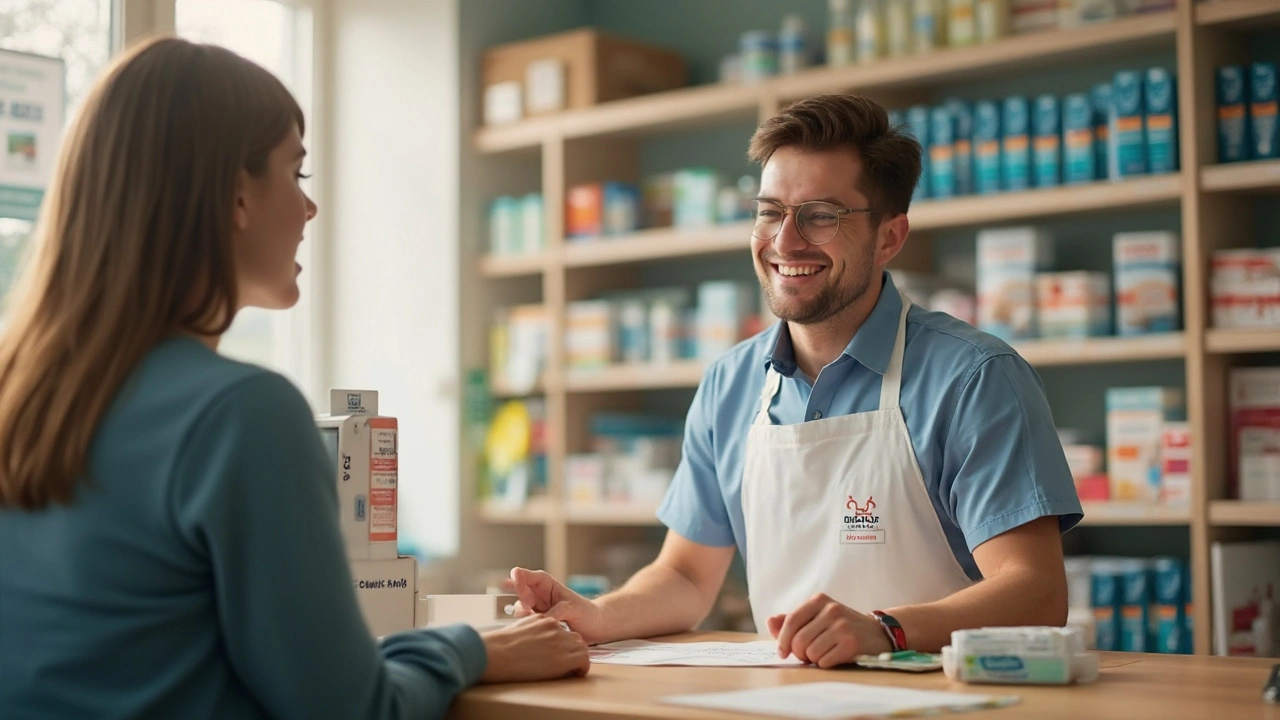Pharmacy Tips: Save Money, Avoid Drug Interactions, and Use Medicines Safely
Ever felt lost at the pharmacy counter or unsure if a supplement plays nice with your pills? These are real problems, and small changes will save you money and keep you safer. Below I’ll share clear, usable tips you can use today—no medical degree required.
Smart ways to lower prescription costs
Compare prices before you pay. Use price-check apps or websites to see cheaper options near you—some apps find coupons that cut costs by 20–80% on common meds. Try generic versions first; generics like generic ibuprofen or generic metformin work the same and cost less. Ask your pharmacist if a 90-day supply or mail-order option is cheaper—buying in larger bottles often saves money and trips.
Talk about savings when you pick up a prescription. Say: “Do you have a cheaper alternative or coupon?” Pharmacists hear that a lot and can suggest a generic, different dose form, or a manufacturer offer. If you use multiple pharmacies, keep a list of prices you’ve seen so you can show them and ask for a match.
Use meds safely: interactions, side effects, and practical checks
Always tell your pharmacist every medicine and supplement you take. Even over-the-counter pills, birth control, or herbal supplements can change how prescription drugs work. For example, certain heart and gout medicines interact badly with other prescriptions—so mention things like febuxostat, blood pressure meds, or herbal teas.
Watch for common red flags: new dizziness, fast heartbeat, sudden stomach upset, or unusual bleeding. Those are reasons to call your pharmacist or doctor. If you start an antibiotic, ask how alcohol or other meds affect it—some antibiotics are fine with a drink, others are not.
Read the short leaflet but focus on the sections: what it treats, major side effects, and things to avoid. If anything sounds unclear, ask one direct question: “Can I take this with my other meds?” A quick pharmacist chat prevents big problems.
Be careful with supplements. Some birth control pills change how your body absorbs vitamins and minerals, so ask if you need a supplement or a different brand. If you use antidepressants, learn about augmentation options only with your prescriber—mixing drugs without advice can backfire.
When buying online, choose legit pharmacies. Look for clear contact info, privacy policy, and the option to call a pharmacist. If a site offers dramatic discounts on controlled meds with no prescription, walk away. A lower price isn’t worth unsafe or fake medicine.
One last tip: keep a simple health card in your wallet with your current meds and allergies. At an emergency or new pharmacy, showing that card saves time and keeps you safe. Small habits like this pay off fast—lower bills, fewer surprises, and better health.

Pharmacist Hacks for Finding Cheaper Prescriptions and Medication Savings
Discover behind-the-counter secrets actual pharmacists use to help people save real money on medicine. Get tips on negotiation, insurance loopholes, and powerful online tools for prescription savings. This article walks you through smart strategies most people never hear about, including the truth about discount cards and patient assistance. If you’re tired of high pharmacy bills, this guide is what you’ve been waiting for.
Read More